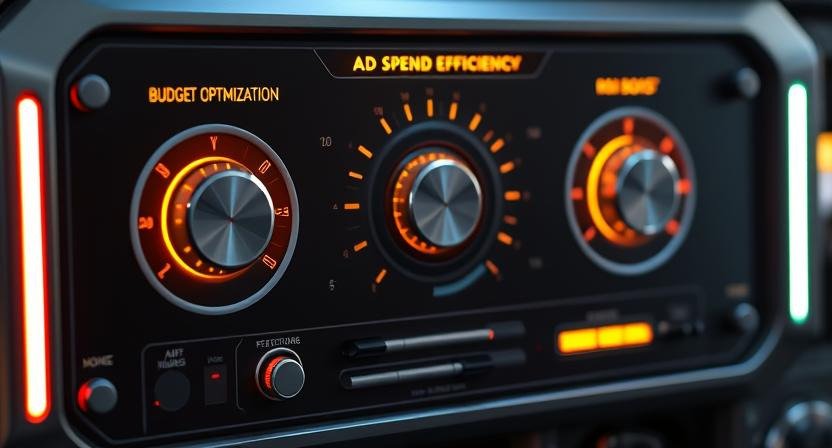Introduction
Pay-per-click (PPC) advertising can be a goldmine when done right—or a money pit when done wrong. The key to success? Smart budgeting. If you don’t manage your PPC budget properly, you could waste money on ineffective ads or miss out on profitable opportunities.
In this guide, we’ll break down PPC budgeting strategies in a way that’s easy to understand and apply. Whether you’re new to PPC or looking to optimize your campaigns, this article will help you allocate your budget wisely and maximize your return on investment (ROI).
1. Understanding PPC Budgeting Basics
Before diving into advanced strategies, let’s cover the basics of PPC budgeting.
What Is a PPC Budget?
A PPC budget is the amount of money you set aside for your paid advertising campaigns. It determines how much you’re willing to spend on clicks, impressions, or conversions.
Why Is PPC Budgeting Important?
A well-planned PPC budget helps you:
✅ Control advertising costs
✅ Maximize return on investment (ROI)
✅ Avoid wasting money on ineffective ads
✅ Ensure consistent ad visibility
Types of PPC Budgets
There are two main types of budgets in PPC advertising:
- Daily Budgets – Set a maximum amount you’re willing to spend per day.
- Monthly Budgets – Allocate a fixed amount for the entire month.
Most platforms, like Google Ads, allow you to set both, ensuring you stay within your limits.
2. How to Set an Effective PPC Budget
Step 1: Define Your Goals
Before setting a budget, ask yourself:
- Do you want more website traffic?
- Are you focused on generating leads?
- Do you need to increase sales?
Your budget should align with your business objectives.
Step 2: Research Your Industry’s CPC
Cost-per-click (CPC) varies by industry. Some keywords cost just a few cents, while others (like legal and finance) can cost over $50 per click! Use tools like:
- Google Keyword Planner
- SEMrush
- Ahrefs
These tools help estimate how much you’ll need to spend for competitive keywords.
Step 3: Calculate Your Maximum Allowable CPC
A simple way to determine your maximum CPC is:
📌 Maximum CPC = (Revenue per Conversion × Conversion Rate) – Profit Margin
If you sell a product for $100 and your profit margin is 30%, you wouldn’t want to pay more than $30 per conversion.
3. PPC Budgeting Strategies for Maximum Profitability
1. Start Small and Scale
New to PPC? Don’t go all in. Start with a small budget, test your ads, and scale up once you see positive results.
2. Focus on High-Intent Keywords
Not all keywords are equal. Focus on keywords with strong commercial intent (e.g., “buy,” “discount,” “best price”). These bring in users who are more likely to convert.
3. Allocate Budget Based on Performance
Shift more budget to high-performing campaigns and reduce spending on underperforming ones. Keep an eye on:
✔ Click-through rate (CTR)
✔ Conversion rate
✔ Return on ad spend (ROAS)
4. Use Ad Scheduling (Dayparting)
Not all times of the day bring the same results. Use ad scheduling to show your ads when your audience is most active.
For example:
- B2B ads perform better during business hours.
- E-commerce ads may perform better in the evening.
5. Geo-Targeting for Better Budget Use
If your business serves specific locations, target your ads accordingly. Running ads worldwide could drain your budget fast.
6. Retargeting for Higher ROI
Retargeting (also called remarketing) shows ads to users who have already interacted with your site. Since they’re already familiar with your brand, they’re more likely to convert, making your PPC spend more efficient.
4. Tools to Optimize Your PPC Budget
Using the right tools can make PPC budgeting easier and more effective. Here are some top picks:
| Tool | Purpose |
| Google Ads Budget Report | Tracks spending and forecasts future costs |
| SEMrush | Competitor keyword and ad analysis |
| Google Analytics | Tracks conversion rates and user behavior |
| SpyFu | Reveals competitors’ PPC budgets |
| AdEspresso | Optimizes Facebook and Google Ads budget |
5. Common PPC Budgeting Mistakes (And How to Avoid Them)
Even experienced marketers make mistakes. Here are some pitfalls to watch out for:
❌ Setting It and Forgetting It
PPC is not a “set and forget” strategy. Check your campaigns regularly to adjust spending based on performance.
❌ Focusing Only on Clicks, Not Conversions
High traffic is great, but conversions matter more. Always track leads or sales, not just clicks.
❌ Ignoring Quality Score
Google Ads rewards high-quality ads with lower CPCs. If your Quality Score is low, improve your ad relevance and landing page experience.
❌ Bidding on Too Many Keywords
Spreading your budget too thin across too many keywords can lead to poor results. Focus on the most profitable keywords instead.
❌ Not Testing Different Ad Creatives
Running the same ad for months? Try A/B testing different headlines, images, and call-to-action (CTA) buttons to improve performance.
6. How to Adjust Your Budget Over Time
PPC budgeting is not static—it should evolve based on performance and business needs.
🔹 When to Increase Budget:
- High-performing campaigns with positive ROI
- Seasonal demand spikes (e.g., holidays, Black Friday)
- Scaling successful ad groups
🔹 When to Reduce Budget:
- Low CTR or conversion rates
- High cost-per-conversion without results
- Shifting focus to other marketing channels
Regularly reviewing and tweaking your budget will keep your PPC campaigns profitable.
Conclusion
Mastering PPC budgeting strategies is essential for maximizing profitability. By setting clear goals, researching CPCs, and optimizing campaigns, you can ensure your ad spend brings the highest possible return.
Remember: Test, track, and adjust—PPC success comes from continuous optimization!
Want to take your PPC game to the next level? Start applying these strategies today and watch your ad performance soar. 🚀
FAQs
1. How much should I spend on PPC?
It depends on your industry, goals, and competition. Start small, track performance, and scale as needed.
2. What is a good ROAS for PPC?
A ROAS of 4:1 ($4 revenue for every $1 spent) is generally considered good, but it varies by business.
3. How can I lower my CPC?
Improve your Quality Score, refine targeting, and use negative keywords to eliminate wasteful clicks.
4. Should I bid on my own brand name?
Yes! Bidding on your brand name helps protect against competitors and ensures you rank first.
5. How often should I review my PPC budget?
Check your budget at least weekly and make adjustments based on campaign performance.
6. Is PPC better than SEO?
PPC brings immediate traffic, while SEO provides long-term organic growth. The best strategy is to use both!




